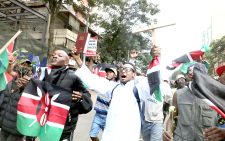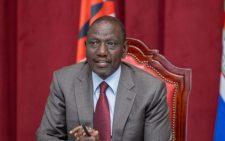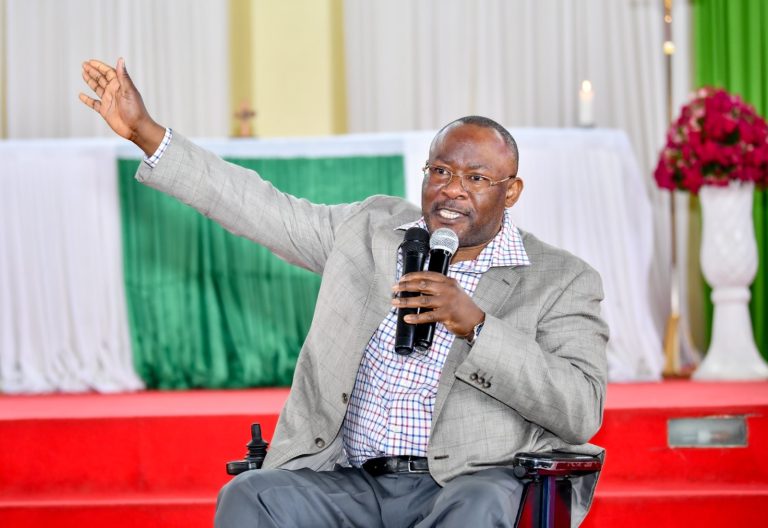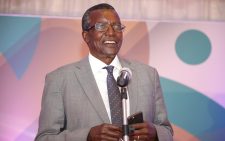Why Mt Kenya will decide 2027 State House race
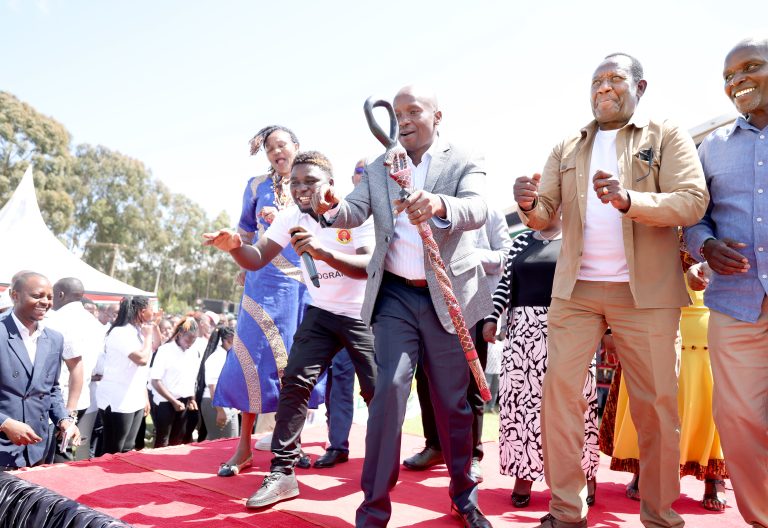
The battle to win over the Mt Kenya region ahead of 2027 has intensified as political leaders scramble to capture the lion’s share of voters from this crucial electoral bloc of over six million people.
The United Democratic Alliance (UDA) enjoyed massive support from the region before the 2022 elections, but this loyalty crumbled after the falling-out between President William Ruto and his former deputy, Rigathi Gachagua.
Gachagua’s impeachment split regional leaders into two factions – those remaining loyal to Ruto and others standing by the ousted DP.
Kindiki’s mission
The impeachment sparked outrage among residents, who accused Ruto of betrayal and vowed to withdraw their support.
The region has now become a political battleground between opposition and government leaders, each seeking to control the vote-rich bloc.
Deputy President Kithure Kindiki, who replaced Gachagua, has been touring the region, conducting project inspections and economic empowerment forums.
These strategic moves are intended to reinforce his influence and secure local support.
Kindiki maintains that the region still supports the President and assures residents they will enjoy increased government development.
“The President is committed to ensuring he delivers every promise he made during the campaign, and that is our focus right now. Time for politics will come,” Kindiki said during recent events where he urged locals to support the government.
The UDA brigade remains determined to secure a second term for Ruto.
“Those threatening that the President will serve only one term will be in for a rude shock because he will win by a landslide,” Betty Maina, Murang’a woman representative, said.
Opposition movements
Kindiki now faces his biggest political test: delivering votes from a region hungry for political revenge.
The supremacy battle between Kindiki and Gachagua over regional kingship has complicated local politics, as Gachagua claims exclusive political control over Mt Kenya.
In mid-May, Gachagua launched his political outfit, the Democracy for Citizens Party (DCP), creating a political stir in the region.
He aims to form a formidable opposition movement with other leaders aggrieved by the government, seeking to deny Ruto a second term.
The self-declared political master claims his plan is already in place, waiting for the right time to execute it while banking on the region’s numerical strength.
The party has opened registration for candidates seeking to contest various elective seats.
The Jubilee Party is also eyeing the region’s vote share, conducting grassroots campaigns to reclaim its former position.
Party Secretary General Jeremiah Kioni, who has held several meetings with grassroots leaders, announced plans for a membership recruitment drive targeting the majority of voters.
Though former President Uhuru Kenyatta remains party leader, his political inactivity leaves questions about whether he will provide direction as elections approach.
Kioni admits UDA’s “yellow fever” was indisputable in the last election but insists his party is working to reclaim political strength.
Unity and division
“The Mt Kenya vote bloc will be the most consequential in the next election. The people of the mountain will determine who will or will not be President,” Kioni said, claiming residents have decided to vote against Ruto and for Fred Matiang’i.
Martha Karua, People’s Liberation Party leader and presidential hopeful, advocates for regional unity despite multiple political outfits.
She recently joined hands with Gachagua, promising to work together for better leadership.
Persistent warnings
However, warnings against abandoning Ruto persist. During a weekend empowerment forum, Laikipia East MP Mwangi Kiunjuri and National Assembly Chief Whip Silvanus Osoro cautioned that supporting a candidate not aligned with the current administration would politically sideline the region.
“As a region, we are better off with William Ruto. He has only five years left, after which he can pave the way for one of our own,” Kiunjuri said.
“Woe unto you if you vote in a new person; it means you will be in the political cold for the next 15 years.”
Regional engagements
Osoro praised Ruto’s frequent regional engagements and understanding of development needs, while Kericho Senator Aaron Cheruiyot urged residents not to fall prey to political manipulation.
“There are political brokers trying to put you all in one basket like potatoes. Don’t allow that. When our regions come together, we prosper as a nation,” Cheruiyot said.
Nyeri Senator Wahome Wamatinga defended empowerment programmes, saying they are meant to uplift the lives of residents in line with the Bottom-Up Economic Transformation Agenda.
“Those saying we are politicking are daydreamers. When we use this forum to replace asbestos pipes and support self-help groups, are we politicking or empowering our people?” Wamatinga stated.
